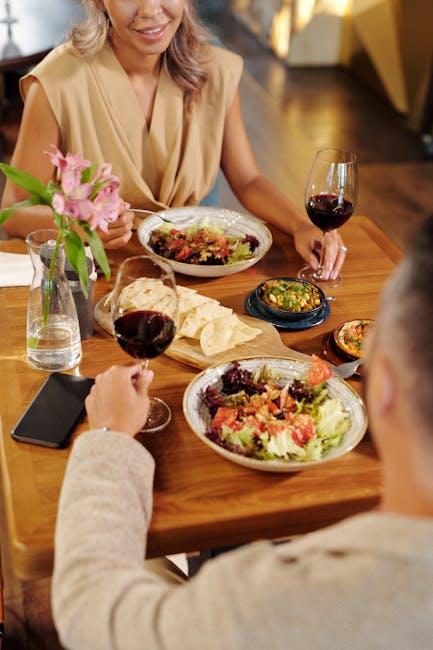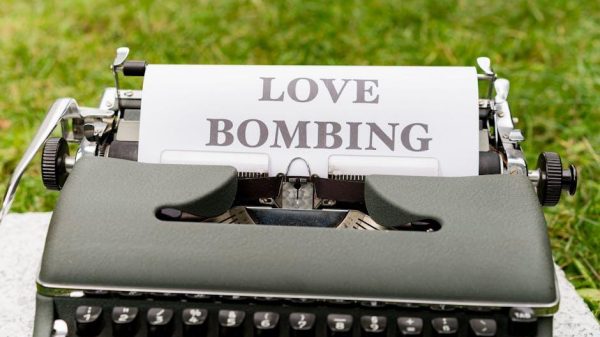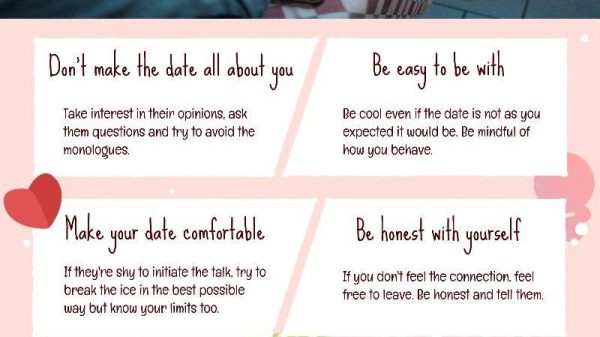Navigating the tumultuous seas of modern dating can often feel like a delicate dance, where the rhythm is unpredictable and the steps are fraught with potential missteps. In an era where swipes determine first impressions and text messages form the backbone of budding relationships, maintaining respect and politeness amidst challenging dating scenarios is more crucial than ever. Whether you’re facing the awkwardness of a first date gone awry or the complexities of defining a relationship, the art of grace and civility can transform even the most difficult situations into opportunities for growth and understanding. This article delves into practical strategies and thoughtful insights to help you uphold respect and politeness, ensuring that every encounter, no matter how challenging, is navigated with dignity and empathy.
Navigating Awkward Conversations with Grace
In the delicate dance of dating, conversations can sometimes take unexpected turns, leaving both parties grappling for the right words. Approaching these situations with composure is key to maintaining a respectful and polite interaction. Here are some strategies to help you navigate through those challenging moments with poise:
- Active Listening: Engage fully with what the other person is saying, showing genuine interest and empathy. This not only helps you understand their perspective but also diffuses tension.
- Mindful Language: Choose your words carefully. Avoid phrases that could be perceived as dismissive or judgmental. Instead, use language that is inclusive and respectful.
- Pausing Before Responding: Give yourself a moment to process your thoughts before replying. This pause can prevent knee-jerk reactions that might escalate the situation.
- Setting Boundaries Gently: If the conversation veers into uncomfortable territory, it’s okay to set boundaries. Do so with kindness, expressing your feelings without placing blame.
By employing these techniques, you can transform potentially awkward exchanges into opportunities for deeper connection and understanding. Remember, the goal is not to win an argument but to foster a dialogue where both parties feel heard and respected.

Balancing Honesty and Empathy in Communication
Navigating through challenging conversations in dating can often feel like walking a tightrope. It requires a delicate balance between being truthful and remaining considerate of the other person’s feelings. Honesty is crucial, yet it should be delivered with a touch of empathy. To achieve this, consider the following strategies:
- Choose your words carefully: Words have power. Select them thoughtfully to convey your message without unnecessary harshness.
- Listen actively: Show genuine interest in the other person’s perspective. It can help in understanding their feelings and tailoring your responses accordingly.
- Stay calm and composed: Keeping your emotions in check ensures that the conversation remains respectful and constructive.
Empathy is about understanding and sharing the feelings of another. When paired with honesty, it fosters a communication style that respects both parties involved. By practicing empathy, you create a space where difficult truths can be shared without fear of causing harm. This involves:
- Validating their emotions: Acknowledge their feelings, even if you don’t fully agree with them. It shows that you care about their emotional well-being.
- Offering support: Let them know you’re willing to help them process the conversation, reinforcing a sense of mutual respect.
- Being patient: Give them time to absorb what you’ve shared, and be ready to revisit the conversation if necessary.

Setting Boundaries Without Offending
In the intricate dance of dating, establishing personal boundaries is crucial, yet it can often feel like navigating a minefield of potential misunderstandings. The key is to approach the conversation with clarity and empathy. Begin by clearly defining your boundaries to yourself. Knowing what you are comfortable with allows you to communicate them with confidence. Remember, it’s not about constructing walls but about setting guidelines for mutual respect.
- Use “I” Statements: Express your feelings and needs from your perspective to avoid sounding accusatory.
- Be Direct but Kind: Clearly state your boundaries while maintaining a warm tone.
- Practice Active Listening: Show genuine interest in the other person’s feelings and perspectives to foster a respectful dialogue.
- Stay Consistent: Consistency helps reinforce your boundaries and signals that you respect yourself.
By communicating your needs thoughtfully, you create an environment where both parties feel respected and valued. This not only preserves the integrity of the relationship but also builds a foundation of trust and understanding.

The Art of Apologizing: Repairing Missteps with Respect
Navigating the delicate art of apologizing in dating can be a transformative experience, enriching the bond between two individuals. When words or actions have caused unintended hurt, it’s crucial to approach the situation with sincerity and humility. Acknowledging your mistake is the first step. An apology should not be a mere formality but a heartfelt admission of responsibility. It’s important to express empathy and understanding of the other person’s feelings, which fosters a sense of mutual respect. Consider saying something like, “I understand how my actions might have upset you, and I’m truly sorry for that.”
In crafting a meaningful apology, keep these points in mind:
- Be specific: Address the specific misstep rather than offering a vague apology.
- Avoid excuses: Steer clear of justifications that can dilute the sincerity of your apology.
- Listen actively: Allow your partner to express their feelings without interruption.
- Seek resolution: Ask how you can make amends or prevent similar issues in the future.
By handling difficult situations with tact and consideration, you can not only mend but strengthen the relationship, paving the way for a deeper connection rooted in respect and politeness.








